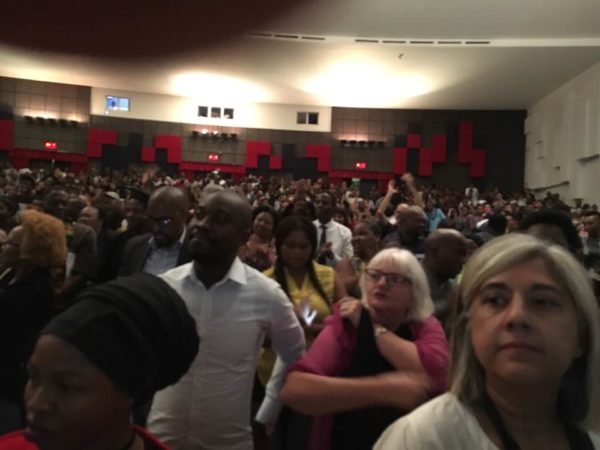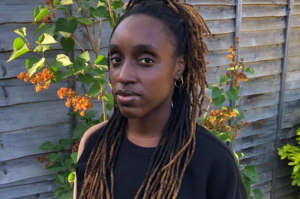Ngugi wa Thiongo was recently hosted by the University of Witwatersrand in Johannesburg where he gave a rousing lecture on African languages.
Cameroonian philosopher and political theorist Achille Mbembe was at the event and said on Facebook that “the atmosphere in the Great Hall was electric.” He also reports that there was over 1000 people in the crowd, all “listening intently” and holding on to every word Ngugi said.
The lecture titled “Secure the Base” (which is available online at this link ) touched on themes that have always been dear to Ngugi’s heart. He called attention to the “pauperizing” of African languages both within the continent and globally. African languages are used in daily life. But they are pretty much absent in African institutions—government departments, law courts, schools, etc. African writers and intellectuals seem to find little or no value in creating work and sharing ideas in African languages.
In the lecture, Ngugi explains this unfortunate situation but also proposes the way forward. It’s not about abandoning European languages, he insists, or pushing an isolationist program where African languages become the only thing we know. For Ngugi, it’s about working hard to put African languages on the global stage. It’s about learning to “use Englis
The lecture hits all the right notes. It is inspiring.
We have extracted a few hard-hitting moments. Enjoy! Follow this link for the full lecture.
***
1. “African scholarship has achieved this great visibility in the world by the tremendous feat of making itself invisible to Africa.
2. “We can only
3. “In any independent African nation today the majority are rendered linguistically deaf and mute by government policies that have set European languages as the normative measure of worth in every aspect of national life.”
4. “In colonial conquest, Language was meant to complete what the sword had started; do to the mind what the sword had done to the body.”
5. “They gave us their accents in exchange for their access to our resources…When African intellectuals and leadership were busy perfecting their borrowed
6. In Africa today, the defenders [the dominance of European languages] are African intellectuals and policy makers. Some of them act as if it is the English and European languages whose existence is being threatened by African languages: African languages interfere with the English accent.
7. “We need the globe, we are told, and that globe can only hear us in English. The English accent blinds [us] to the reality that what [we] are getting from the global table are simply the remnants of the global a
8. “There is nothing wrong in wanting to take English or any other language as one’s own…Each language, big or small, has its unique musicality.”
9.. “Pamper European languages; Pauperize African languages.”
10. “[African] universities…ought to be full of scholars who know and even work in several African languages; translators into African languages; theorists of African languages in African languages.”
11. “Use English instead of English using us.”
12. “Make knowledge of an African language count in awarding degrees and in promotions, at the university, civil service.”
13. “Make it both cool and clever to know an African language.”
14. “If you know all the languages of the world and you don’t know your mother tongue or the language of your culture, that is enslavement. But if you know your mother tongue or the language of your culture, and add all the other languages of the world to it, that is empowerment.”
*************
Images from Achille Mbembe’s Facebook page.










COMMENTS -
Reader Interactions